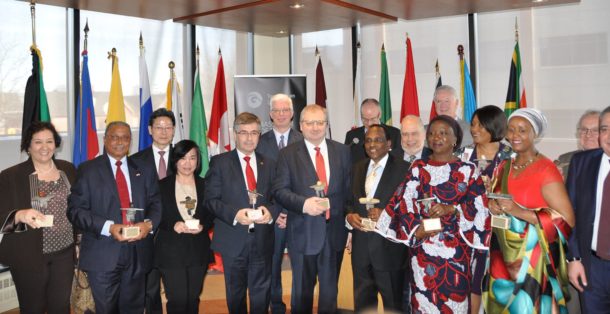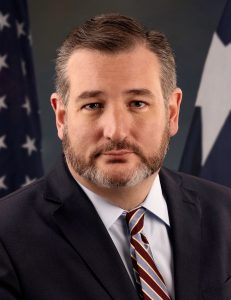medium.com; original article contains footnotes
By: Coby Vail, THO Non-Resident Fellow

Public diplomacy [JB emphasis] and the use of soft power have finally come of age internationally and Turkey has become one of its top practitioners. Especially with the rise of the internet, digital communications and social media, states are better prepared and equipped than ever before to engage with foreign publics. But first, what is public diplomacy? According to the USC Center for Public Diplomacy, “public diplomacy has been widely seen as the transparent means by which a sovereign country communicates with publics in other countries aimed at informing and influencing audiences overseas for the purpose of promoting national interest and advancing its foreign policy goals.” But public diplomacy is broad, including anything from an embassy’s social media accounts to “language training, cultural events, radio and television broadcasting” and much much more. It’s a way of leveraging marketing and soft power to communicate your country’s image in a foreign country.German, French, and British cultural centers can be found across the globe. Chinese and Arabic language programs are being set up in American schools, funded in large part by the Chinese and Qatari governments. Nations are discovering countless opportunities to communicate their values, image and reputation directly to foreign peoples. Small investments (relatively speaking) can pay with big diplomatic wins.As a rising power with significant international interests, Turkey wants to be a leader on the international stage, and it has much to offer the world. Turkish leaders have discovered that public diplomacy is an effective way to exert influence. In B. Senem Cevik and Philip Seib’s book, Turkey’s Public Diplomacy, they write that “relying on public diplomacy conveys a message of maturity that is least likely to provoke worries among neighbors in a region that is always fraught with tensions. The approach enhances the perception of Turkey as an honest broker among contentious parties, a role that can win respect not only within the greater Middle East but also from other nations that watch the region nervously.” So, public diplomacy is a higher road that will result in specific benefits for Turkey and its neighbors. It’s not possible for me to consider all aspects of Turkey’s public diplomacy in one blog post, so in this post I will only consider the role of Yunus Emre Institutes in the Balkan region. Although I will focus on Turkey’s public diplomacy with its neighbors, future blog posts will consider other aspects of public diplomacy as well how Turkey’s successful public diplomacy strategy might benefit U.S.-Turkey relations.Turkey’s rich history and culture are a significant advantage when it comes to an effective public diplomacy. Turkey has found a public diplomacy tool in its shared Ottoman heritage with the Balkans, the Middle East, and North Africa. At the time, Turkey wisely decided that emphasizing this shared past and culture could build bridges between nations and emphasize a shared future. One of the most effective public diplomacy tools have come through the Yunus Emre Institutes. This tool has been wielded to great and successful effect in the Balkans. Yunus Emre Institutes are cultural institutions opened around the globe with the goal of familiarizing people with Turkish culture, language, and society. When the very first Yunus Emre Institute opened its doors in Bosnia, then Foreign Affairs Minister Ahmet Davutoğlu stated that: “the opening of the first cultural center in Bosnia is not a coincidence but a carefully thought strategic decision.” It’s clear from Davutoğlu’s statement that aside from the primary cultural function of the institute, that it also served a larger strategic, public diplomacy goal of binding the Bosnian and Turkish people together through common ties. In this sense, the Yunus Emre Institutes were envisioned as Turkish foreign policy tools to connect directly with foreign publics. A rapid expansion of these institutes has followed. There are now 15 Yunus Emre Institute branches in the Balkans and many more around the globe. Through these institutes people learn the Turkish language, view Turkish films, learn about potential exchange programs and much more. Having engaged with Turkish culture and language once, they are likely to engage with them again in the future.The strength of the Yunus Emre Institutes does not end here. These institutes have been key in creating new relationships between Turkey and local cultural institutions whether universities, schools, or non-governmental organizations. Due to a shared and cherished past, Turkey has emphasized and financed both Ottoman studies and Turkish language. Returning to the Balkans, the Yunus Emre Institute has helped to create Turkish classes in primary and secondary classes, as well as the university level using Turkish teachers. Turcology departments in universities across the region have been established. A whole university, the International University of Sarajevo, was established by the Turkish government in Bosnia in 2004. The institutes have also hosted classes on Turkish arts, crafts, and traditions that are also endemic to the Balkan region to emphasize shared values and traditions between the two peoples.Overall, this is a wildly successful example of public diplomacy in the Balkans. Turkey is doing the difficult work of building relations with the public in that region. Such efforts are similar to saving money for a rainy day. When difficult circumstances or crisis come, as they do to all nations, Turkey’s image and reputation are more likely to weather the storm due to positive interactions that foreign publics have already had through the Yunus Emre Institutes and other parts of Turkey’s public diplomacy institutions.Turkish Heritage OrganizationTHO is a young, independent, nonpartisan 501(c)(3) organization in Washington, D.C. dedicated to supporting the U.S.-Turkey bilateral relationship.
Original Article







